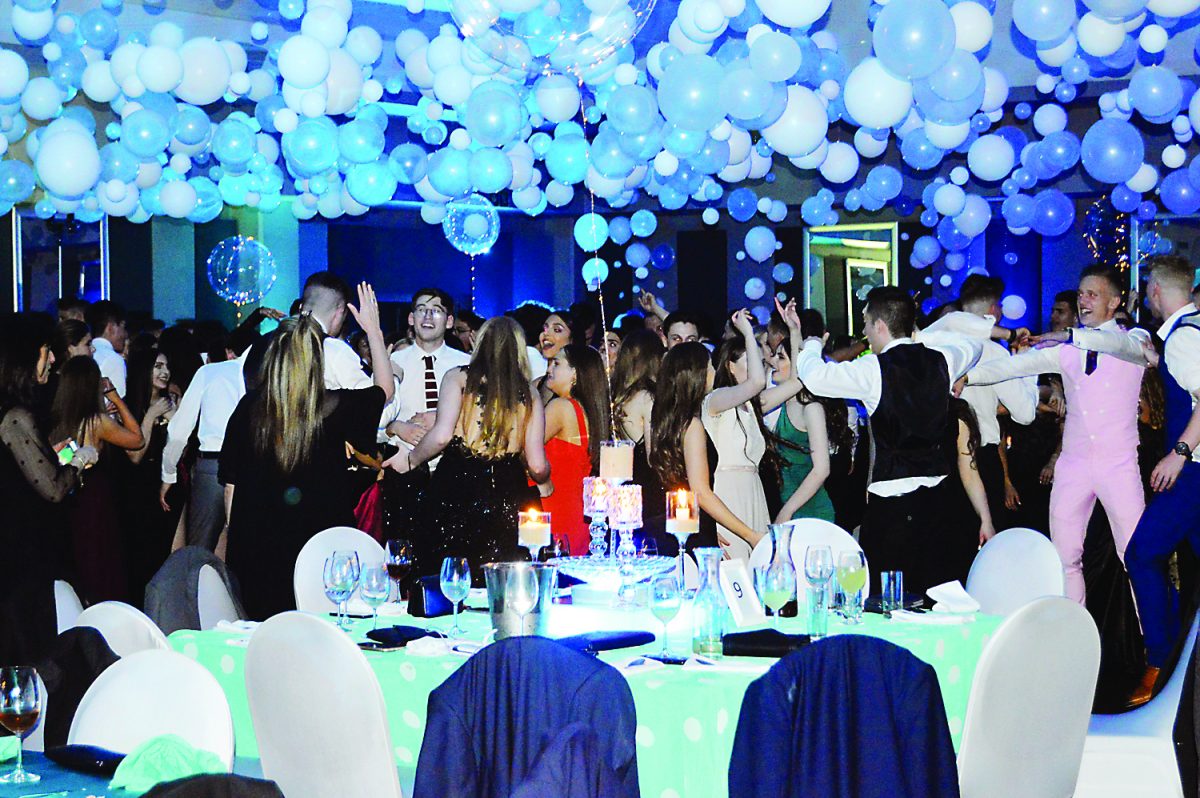
Featured Item

Coming to terms with a finale like no other
“This was the year we were going to bring it home,” says talented first-team rugby captain, Joshua Pimstein, of King David High School Linksfield (KDHSL), lamenting the shattered dream of winning the Pirates School Rugby Challenge and the impact of COVID-19 on the matric class of 2020.
For vice-head boy Pimstein and others, nothing about the class of 2020 has gone according to plan.
“Our rugby team has made the finals three times throughout our high school career, and this was going to be our shot at making history for King David rugby. This was our time to win, and make our school proud. Sadly, the pandemic ended this dream,” he told the SA Jewish Report.
As a member of the Lions High Performance Squad, he also had high hopes of making the U18 Craven Week teams, which have also been dashed.
COVID-19 has upended the lives of matrics across the country. Many have referred to it as the lost year, or the year that was cancelled. It has exposed the glaring and utterly unacceptable inequalities in the education system and the country.
“It certainly is a year like no other,” says Johannesburg clinical psychologist Judith Ancer.
Every matric student, no matter their personal circumstance, will have gaping spaces in their photo albums. The pandemic has left an empty hole where coming-of-age milestones should be.
The executive head of Redhill School, Joseph Gerassi, says every student looks forward to being a senior.
“Everything culminates in your matric year. They have been robbed of this, and they will never get it back again. These kids are never going to captain teams, they aren’t going to be the lead in the final major production. There is a definite sense of loss and unfairness. But there is also a sense of gratitude and appreciation. Their eyes have been opened.”
One of his matriculants, Gemma Muller, expressed her feelings in an essay competition run by Professor Jonathan Jansen titled “Learning Under Lockdown”, which she won.
In it she writes, “I am a matric of 2020, and it is unfair isn’t it? Why does it have to be our year? I could very well sit here behind a R7 000 laptop with optic-fibre connection and complain that I am not getting the same education as I would be in class, or that I want a matric dance and miss my friends. If you are trapped in this mindset – stuck in a thunderstorm of why me? Why now?, I ask you to think about the students from the 5 369 high schools in South Africa that do not have internet access – the students who cannot simply open a laptop and enter a writing competition.”
She writes that online learning has taught her so much – “the importance of essential workers compared to that of celebrities and sporting legends. It has taught lessons of empathy in the face of adversity. It has shown us the power of compassion and generosity in a battle with fear and greed.”
Gerassi says this years’ matrics will have the grit needed to face new challenges.
“They have had to learn to work in a world that is far from normal. Will this help them going out into a world that is changing every day, I believe it will.”
While matrics in well-resourced schools haven’t been disadvantaged from an academic point of view, Gerassi says it’s been incredibly tough from a social and emotional point of view.
One student who wishes to remain anonymous says she feels an overwhelming sense of sadness.
“It’s hard to feel joyful. I’m grateful for my blessings, I just don’t have anything exciting to look forward to. COVID-19 has opened my eyes. It’s been heart breaking seeing so many people my age living in poverty. I want to do something with my life that will help alleviate suffering.”
In the meantime, for kicks, she and a few friends superimposed photographs of themselves with their prospective matric dance partners onto existing photographs of people dressed up for a red-carpet event.
“It was fun to envision what we’d look like if we had a dance,” she says.
One of the unintended consequences of the pandemic, says Ancer, is that it has helped teenagers see the broader picture.
“While their losses are meaningful and relevant, there is a broader context.”
There is a sense that they see themselves as the class that is living history as it unfolds.
However, the loss these children are experiencing is real, Ancer says.
“We have to acknowledge that it’s a real loss for some. It’s unfair. It’s hard, but it is what it is, and this is the hardest thing to tell teenagers. Parents need to be the calm at the centre of their storm. They need to look after their own mental health, and be able to acknowledge the losses with their kids. There’s no point telling them to look on the bright side when they are feeling unhappy and angry.”
She says it’s time for parents to be creative.
“Mark an important occasion like a graduation or matric dance by hosting a special family meal or picnic. Celebrate and acknowledge lost milestones in different ways.”
KDHSL head girl, Erin Atie, says that while it has been a difficult year, there are many positives.
“Our matric experience is unique. There has been a great sense of camaraderie with everyone having to deal with something so big together,” she says.
“I learnt to think out of the box and implement initiatives in a creative and fun manner. KDHSL gave me the space and support to grow in ways I would never have grown in a non-COVID-19 matric.”
Says Pimstein, “It’s so sad that 2020 will be the first matric group that won’t have a rugby season. I do feel let down. I feel that the first-team rugby season was taken away from me.
“While it’s disappointing, I’ve learnt to appreciate the opportunities I’ve had, and cherish the memories.”










